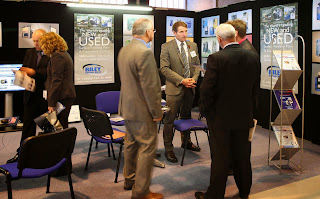McAree
Engineering is one of Ireland’s leading outsource sheet metal fabrication
companies based near the picturesque village of Ballinode in North Monaghan.
Founded
in 1946, the company has built a solid reputation for quality service backed up
by state of the art production facilities. Services include laser cutting, folding,
punching and fabrication and the company has achieved ISO 9001 quality
accreditation.
McAree
Engineering has recently introduced spray painting and powder coating to its
production processes. This is in order to expand the business into production of
finished or part-finished components as well as sheet metal production.
Having
achieved ICOR accreditation for paint finishing, the company decided to invest
in a state-of-the-art shot blasting, spray painting and spray baking facility
from Riley Surface World. The equipment selected had all been declared surplus
to requirements by a UK- based utility vehicle manufacturer.
After
taking advice from the Riley Surface World technical support team, McAree
purchased a 7 x 7 x 4 metre Hodge Clemco shot blast room with large, fixed shot
blast machine, media recovery system, Nederman reverse pulse dust collection
and all modern safety devices built-in. The system will be used for priming and
pre-finishing of the metals prior to painting or powder coating.
For paint
application and curing, the company selected a purpose built, Spraybake 4 x 7 x
5 metres spray/bake room with thermostatically controlled gas heating,
fan-assisted air handling, floor-mounted extraction system and ample
fluorescent lighting for a high quality paint finish combined with minimum
wastage and maximum operator safety.
Finally,
McAree acquired a large paint storage and mixing room with all necessary
ventilation, product security and fire prevention facilities built-in.
The
equipment is to be commissioned in McAree’s new purpose-designed paint and
powder coating building alongside their existing factory in Ballinode. Once
fully operational, the new facility will provide extra services to existing
sheet metal customers, as well as attracting new sub-contract projects from
Ireland, the UK and the rest of Europe.
According
to project manager, Vincent McAree, the company enjoyed excellent value for
money by purchasing such high quality, pre-owned equipment from Riley Surface
World. He was also impressed by the first-class customer service shown by the
Riley support team in enabling the purchase and transfer of the items from the
UK to Ireland and is confident that the investment made will pay dividends in
potential new business to be won in the near future.
For
further information, visit: www.mcaree-eng.com













